Mission
Riskcenter specializes in the field of risk management, insurance and finance. It was founded at the University of Barcelona (UB) in 1992 by academics from the Department of Econometrics. Its main line of research is the analysis, evaluation, management and control of risk in finance and insurance. Members of Riskcenter are specialists in actuarial statistics, insurance and financial econometrics. Their main contributions include fraud in insurance, longevity, long-term care, pricing and interest rate structure. The center has about thirty members and affiliates including academics, researchers, PhD students and administrative staff.
The UB is leader in post-graduate education with a Master of Science in Actuarial Science and Finance. A Master of Science in Statistics and Operations Research with a field in Economics, Actuarial Science and Finance is offered jointly with the Technical Univeristy of Catalonia. The University of Barcelona occupies the most-highly ranked position among Spanish research institutions in national, European and worldwide rankings. Members of UBriskcenter have been the recipients of prizes and distinctions awarded by a variety of institutions for their contributions to higher education, research, and collaborations conducted with the industry. Contact us by email to: rfa@ub.edu
Statements
Since its origins, the research group has attempted to walk towards an open science and innovation system that tackles the societal changes of our world, including health, demographic changes and wellbeing which are in the scope of our research. This original mission is in line with the Responsible Research and Innovation (RRI) framework, a cross-cutting issue in Horizon 2020, the current EU Programme for Research and Innovation. RRI is an umbrella concept that includes in a holistic way different policy agendas aimed at improving the relation between science and society. The RRI’s policy agendas (ethics, gender equality, governance, open access, public engagement and science education) are implemented in the following way:
Ethics
Riskcenter members consider research integrity to mean that research methods, activities and processes are guided by standards, guidelines and protocols. The code of conduct and good practice rules is to promote honesty in reporting and communicating, reliability in performing research, objectivity, impartiality and independence, openness and accessibility, duty of care, fairness in providing references and giving credits, and responsibility for future science generations. To facilitate higher standards of research integrity, Riskcenter has established an ethics committee to ensure that scientific research is conducted in an ethical manner. The ethics committee is described below. Riskcenter aims to maintain a culture of research integrity by training and mentoring researchers at all stages of their careers.
Gender Equality
Riskcenter is a gender balanced team. Team members believe that ensuring gender balance is vital to producing high quality outcomes that benefit everybody.
Open Access
Publishing articles in academic journals is a primary route through which Riskenter members communicate research findings. In addition, open access to scientific publications and results is encouraged. Free and earlier access to scientific work can improve the quality of scientific research and facilitate constructive collaboration among peers and productive dialogue with civil society. Among the actions that Riskcenter members carry out to incorporate open access in research practice, the following are the most remarkable: (i) a collection of working papers accessible from at the web site that is available at RePEc, (ii) a part of the website includes data, methodologies, programming codes and other resources related with Riskcenter research, and (iii) an increasing social media activity to transfer research findings to society is promoted.
Public Engagement
In order to align research outcomes with the values, needs and expectations of society, Riskcenter members foster a collaborative and multi-actor research process.
Science Education
To enhance the current education process to better equip citizens with the necessary knowledge and skills to enable their participation in R&I debates, Riskcenter members participate actively in the following masters degrees, PhD and CPD programs: Master of Actuarial Science and Finance, Master of Statistics and Operations Research, Master of Economics, Master of Business Administration, PhD program in Statistics, PhD program in Business, PhD program in Economics, Master in Management of Insurance and Financial companies and Postgraduate program in Risk Management. In all of them, seminars and conferences to disseminate research activity are organized. These workshops usually include contributions from scholar researchers, firms and governmental authorities. Furthermore, Riskcenter aims at promoting scientific vocations in young students, opens grant opportunities in projects, and most importantly, promotes high-school level participation in contests. This has a large impact on the educational community, youngsters and their families. As a whole, these activities promote sound use of data and analytic statistical methods.
Governance
The research group is organized so that participation of all members is guaranteed. The organizational structure by topics and tasks facilitates this goal, it also ensures the quality of study programs and shapes the future of the research team.
Ethics committee
The ethics committee is a body constituted freely and voluntarily by the researchers of Riskcenter to preserve the integrity of research and the code of ethics. The committee acts independently and at the complete service of the researchers and the scientific community. Its functions are:
- To supervise the general, constant, and complete fulfilment of guidelines of the code of good scientific practice in the Riskcenter.
- To act as an arbitration body for uncertainties or conflicts that may arise in relation to research integrity matters. Its decisions are binding for those researchers submitting their conflicts to the committee.
- To provide information and orientations related to ethical aspects of research and the Code of Ethics.
- To resolve conflicts of interest when they arise.
The committee is formed by the director of Riskcenter, the director of the Department of Econometrics and the Dean of the Faculty of Economics and Business of the University of Barcelona. Whenever required, one or more members of this committee can be substituted by a Riskcenter affiliate or by a senior researcher of the UB Institute for Applied Economics.


